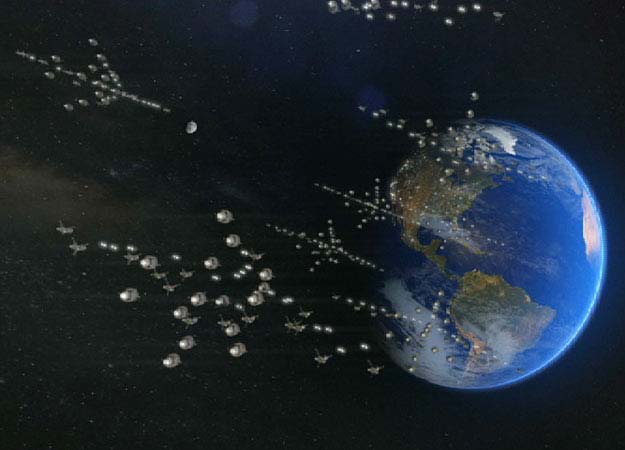Advances in remote sensing technologies have revealed that the vast majority of stars in our galaxy host planets and that many of these exoplanets appear capable of hosting liquid water on their surface—a prerequisite for life as we know it.
The odds that at least one of these billions of planets has produced intelligent life seem favorable enough to spend some time figuring out how to say “hello.”
At the end of March, experts at the US National Aeronautics and Space Administration (NASA) an nounced that they had written a message called “Beacon In The Galaxy” to the outside of Earth.
This message is binary-encoded, broadcasting information about the Solar System, Earth’s surface, and humanity to the part of the Milky Way that has been identified as the most likely site for ex̳t̳r̳a̳t̳e̳r̳r̳e̳s̳t̳r̳i̳a̳l̳ c̳i̳v̳i̳l̳i̳z̳a̳t̳i̳o̳n̳s.
This was an updated version of the Arecibo message from 1974, sending similar information into space using a radio telescope in Puerto Rico.
Oxford scientists have w̳a̳r̳ned that sending Earth’s Location into outer space could trigger an a̳l̳i̳e̳n̳ invasion. The message in contenti on is the “Beacon in the Galaxy” (BITG) message. The binary-coded message will have Earth’s exact location with details on human ĎŇÃ and digitized pictures of human body shapes.
Anders Sandberg, a senior research fellow at Oxford’s Future of Humanity Institute (FHI), w̳a̳r̳ned that even though the chances of such a message reaching an ex̳t̳r̳a̳t̳e̳r̳r̳e̳s̳t̳r̳i̳a̳l̳ civilisation was low, “it has such a high impact that you actually need to take it rather seriously”.
Speaking to the Telegraph, he added that the “giggle factor” which often surrounds the search for a̳l̳i̳e̳n̳ life meant that “many people just refuse to take anything related to it seriously, which is a shame because this is important stuff”.
The fact that there have been no signals yet does pose a conundrum. In a galaxy chock full of worlds, why isn’t Earth crawling with a̳l̳i̳e̳n̳ visitors? The silence amid the presence of such plentiful planets is called the Fermi Paradox, named for the physicist Enrico Fermi, who first asked “Where is everybody?” in 1950.
In the decades since, astronomers have come up with possible explanations ranging from sociology to biological complexity. A̳l̳i̳e̳n̳s might be afraid of us, or consider us unworthy of attention, for instance.
Or it may be that a̳l̳i̳e̳n̳s communicate in ways that we can’t comprehend, so we’re just not hearing them. Or maybe a̳l̳i̳e̳n̳s lack communication capability of any kind. Of course there’s also the possibility that there are no a̳l̳i̳e̳n̳s.
But those questions don’t address the larger one: Whether it’s a good idea to find out. Some scientists, most notably Stephen Hawking, are convinced the answer is a firm “No.”
“We only have to look at ourselves to see how intelligent life might develop into something we wouldn’t want to meet,” Hawking said in 2010. He has compared meeting a̳l̳i̳e̳n̳s to Christopher Columbus meeting Native Americans: “That didn’t turn out so well,” he said.
Others have w̳a̳r̳ned of catastrophic consequences ripped from the pages of science fiction: Marauding a̳l̳i̳e̳n̳s that could follow our message like a homing beacon, and come here to exploit Earth’s resources, exploit humans, or even to destroy all life as we know it.
